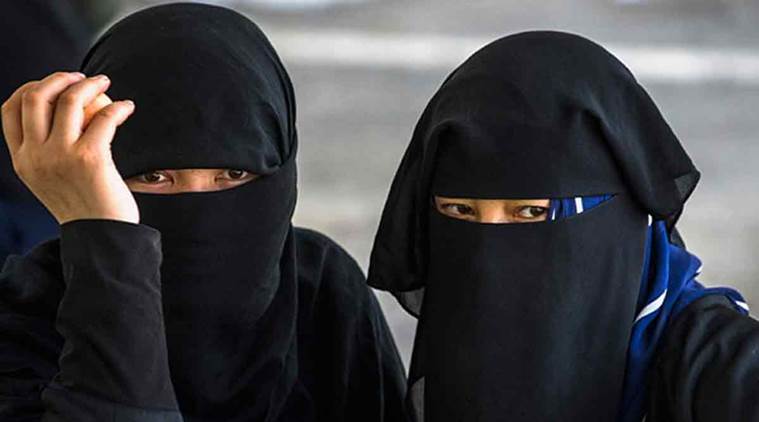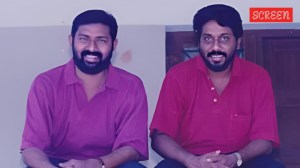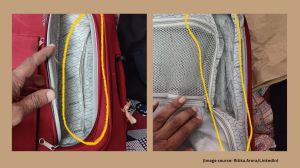The All India Muslim Personal Law Board on Tuesday invoked Lord Ram to defend the practice of triple talaq in the Supreme Court, saying both were matters of faith and so courts should stay away.
“That Ram was born in Ayodhya is a matter of faith, not Constitutional morality. Same is the case (with triple talaq)…The Constitution of India recognises ‘personal law’ of all religious denominations being communities and protects their faith by making them immune from challenge under Part III of the Constitution,” Senior Counsel Kapil Sibal, appearing for the Board, told a five-judge Constitution Bench which is hearing a batch of pleas challenging the controversial practice.

The court is hearing seven petitions including five filed by Muslim women challenging the practise of polygamy, nikah halala and triple talaq in the community. Other members on the bench are Justices Kurien Joseph, U U Lalit, R F Nariman and Abdul Nazeer.
Sibal’s contentions are bound to set off a controversy with pro-temple groups who will interpret this as an admission of their claim that Ram’s birth in Ayodhya is beyond legal purview.
The petitioners had contended that marriage, succession and divorce had been taken out of the purview of personal law and made statutory rights by a Privy Council judgment of 1932 and subsequently by The Muslim Personal Law (Shariat) Application of 1937 and hence it was open to the court to examine its validity under Article 13 of the Constitution. Article 13 says that any law which “immediately before” the coming into force of the Constitution will be void if it violates the provisions of the Constitution.
Sibal, however, opposed this conclusion saying the purpose of the 1937 Act was not to codify Muslim personal law. Under the then Hindu law, women did not have the right to inherit property and the Act was brought to empower them to have the right, he said.
“The essential purpose of the said Act of 1937 was to ensure that all those customs and practice which were contrary to Islam but being followed by those who embraced Islam should be discontinued and declared to be contrary to Islam. The Act of 1937 is neither an attempt to codify the ‘personal law’ of Muslims in India nor does it represent a statutory enactment of ‘personal laws’ of Muslims in India,” Sibal said.
Read | Triple talaq exception rather than rule: Survey
Story continues below this ad
Stressing the importance of personal law, he said “personal law is not something decided by the individual. It is through the interaction of the individual, family and community for many years that personal law evolves…Even the British did not interfere with personal laws…Will Your Lordships decide the faith of 160 million people or is it the responsibility of the legislature? Personal laws of Muslims have evolved through 1400 years of practice. Are we to say now its un-Islamic? The Court, in exercise of its powers under the Constitution, should not, in matters of faith, seek to interpret the manner in which the community should understand its own faith.”
Sibal warned that the “consequences” of the court interfering in personal laws “will be unimaginable”.
“The point is once you start interfering in it, where do you go?..Consequences of this are enormous…We can’t even imagine the consequences,” Sibal added.
Interestingly, Sibal agreed with fellow AIMPLB counsel Yusuf Muchhala’s contention that instant triple talaq was “undesirable.” Muchhala told the court “it is an undesirable form of divorce. We are trying to educate people. We are working on it and we are advising people not to resort to the practice.”
Story continues below this ad
Sibal added to this saying, “We are not saying it is permanent or immutable. We are aware of the need to change. But we will do it in our own way. It is not for someone else to tell (us) what it is.”
He also repeatedly referred to what he said was the discrimination in Hindu law to buttress his claims. The Dowry Prohibition Act of 1961 banned the practice of dowry but allowed parents to give gifts to daughters and thus this practice is continuing, he said. Adding: “in case of Hindu law, you protect all customs. In case of Muslim law, you will say it violates provisions of the Constitution.”
Justice Kurien Joseph sought to know what was the need for messengers to improvise on it if the Koran had already laid down the procedure for divorce. “Talaq is separation, which is conceived and well explained in the Koran. Then why go for anything else..What was the need for the messenger to lay down something when it is actually given in Koran,” Joseph sought to know.
Read | Relatives to blame for talaq: Survey
Sibal replied that he did not know how to answer this to which Justice Kurien said he was only trying to understand whether the (triple talaq) provision was added to meet the need of the hour — a need which may be non-existent now.
Story continues below this ad
Sibal also tried to draw an analogy with cow slaughter only to be told that it was a bad example.

 The essential purpose of the said Act of 1937 was to ensure that all those customs and practice which were contrary to Islam but being followed by those who embraced Islam should be discontinued and declared to be contrary to Islam. (Representational image)
The essential purpose of the said Act of 1937 was to ensure that all those customs and practice which were contrary to Islam but being followed by those who embraced Islam should be discontinued and declared to be contrary to Islam. (Representational image)






